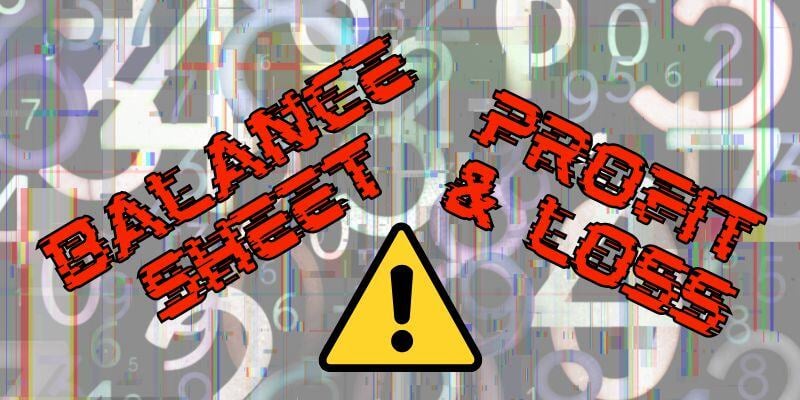If Your Balance Sheet is Wrong, So is Your Profit and Loss Statement. Here’s Why.
December 23rd, 2024 | 5 min. read

To most small business owners, your Profit & Loss Statement (also called P&L or Income Statement) is your holy grail. Your Balance Sheet… is another story. You may not even care if it's wrong.
What if we told you that if your Balance Sheet has errors, so does your P&L? If you care about your P&L, you’d better care about your Balance Sheet, too. Let’s talk about how they're deeply connected.
At CSI Accounting & Payroll, we’ve worked with small business accounting for nearly 60 years. That means we’ve gotten a lot of questions about these financial statements, including:
- How are Balance Sheets and P&Ls connected?
- How do incorrect Balance Sheets and P&Ls hurt my business?
- How do I fix incorrect Balance Sheets?
How Balance Sheets and P&Ls Are Connected
The numbers on your Balance Sheet and your P&L are closely connected in a few ways:
- P&L's revenue and expenses affect net income, which flows into the Balance Sheet's retained earnings. Misstated revenue or expenses directly impact the Balance Sheet's equity section.
- The Balance Sheet's A/P and A/R influence the P&L's revenue and expenses. Unrecorded invoices may understate revenue, and missing A/P entries may understate expenses.
- Overstated Balance Sheet assets lead to incorrect P&L depreciation expenses.
- Unrecorded Balance Sheet liabilities result in missing P&L interest or expense accruals.
How Incorrect Balance Sheets and P&Ls Hurt Your Business
During onboarding, we often meet new clients who know their Balance Sheets are wrong – but they don’t care because they don’t use them. They often come from annual tax accountants who didn’t review or reconcile their Balance Sheets. Why? Some entities don’t need to submit a Balance Sheet with their tax returns, so many accountants think of it as skipping an unnecessary step instead of skipping a very necessary step.
We’ve hired three accountants who remarked “It’s refreshing that CSI actually does accounting the right way.” – referring to us creating accurate Balance Sheets. That’s how rare it is!
Consequences of an Incorrect Balance Sheet
If your Balance Sheet isn’t reviewed or reconciled, resulting in missed mistakes, then:
- Your taxes were filed wrong. If your Balance Sheet wasn’t looked at, your taxes shouldn’t have been filed.
- You can’t benefit from your Balance Sheet. A correct Balance Sheet can help determine your business's net value, current and long-term debt, how well you can turn an asset into cash, and changes in cash, A/R, A/P, equity, inventory, and retained earnings. Without an accurate Balance Sheet, you could face unexpected cash flow issues, debt mismanagement, and more.
- Your P&L is wrong. It’s very rare for something to be wrong on your Balance Sheet and not affect your P&L, especially cash and assets. Let’s get into this more in the next section!
Consequences of an Incorrect P&L
Your Profit and Loss (P&L) Statement, often referred to as an Income Statement, is useful to gauge the overall performance of your business. If it’s wrong, there are some pretty major consequences, including:
- Not knowing how your business is *really* doing.
- No tax planning or tax projections. Learn about tax planning and projections here!
- Inability to identify opportunity areas to grow.
- Inability to see problem areas to fix.
How to Fix Incorrect Balance Sheets
Luckily, if your Balance Sheet is right, then your P&L has to be right! If your accountant ensures you have accurate Balance Sheets, you won’t face the challenges of incorrect P&Ls listed above.
Worried about your Balance Sheet? Review it! As the owner, you will know if many of the numbers shown are reasonable or not. If you or your accountant see any glaring red flags, there are two ways to fix them:
- Hire an accountant to do back taxes. We recommend this if there may be tax benefits to amending returns that were wrong because of Balance Sheets. Learn about back taxes here!
- Hire an accountant to adjust your data in the current year. If tax benefits are unlikely, we don’t need to amend your return or do back taxes. It depends on how you’ve been doing financially since the mistake occurred.
Reap the Benefits of Accurate Monthly Financial Statements!
What’s better than accurate financial statements? Getting them monthly and working with an accountant who is happy to help you analyze them! That’s what we have at CSI.
Now that you know how Balance Sheets and P&Ls are connected, how incorrect ones hurt your business, and how to fix them, are you ready to check out monthly accounting services? If so, please consider CSI Accounting & Payroll! To see if we can be a good fit for your business, click the button below for a free consultation:
Not ready to talk? That’s okay! First, learn more about what it’s like to work with us by clicking the image below:
Brian is the owner of CSI Accounting & Payroll. After earning a double major in Accounting and Financial Management from the University of North Dakota, he joined CSI in 1996 and purchased it in 2002. With decades of experience, Brian now focuses on education: contributing to professional associations and business books, actively participating in continued learning for his team, and, of course, sharing transparent insights on CSI’s website.



